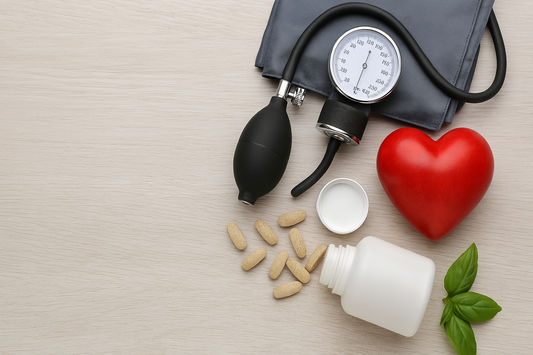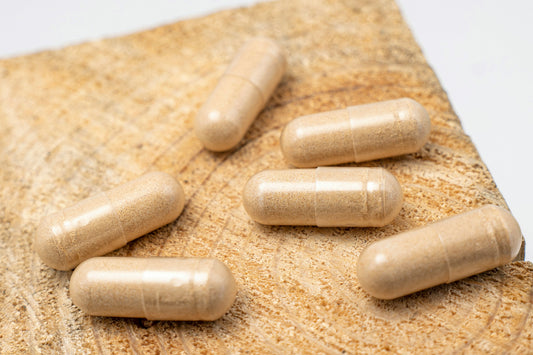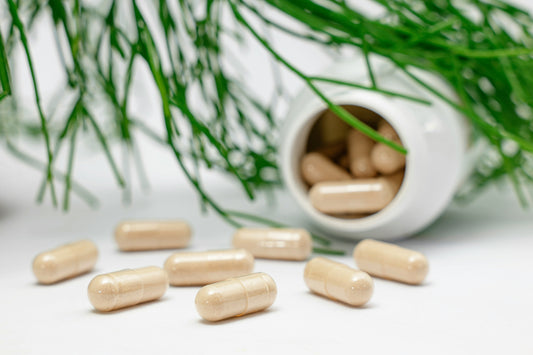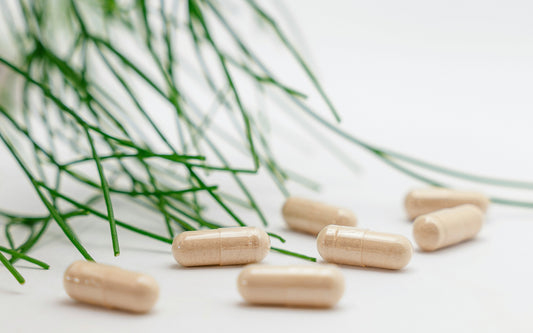How Much Water Should I Drink to Lower My Blood Pressure?
Maintaining proper hydration is crucial for managing blood pressure levels. While drinking enough water is important, it is not a standalone treatment for high blood pressure. However, staying hydrated helps maintain blood volume and prevents dehydration, which can contribute to elevated blood pressure.
The recommended daily intake of water for adults is six to eight 8-ounce glasses, which is equivalent to about 1.5 to 2 liters. It's important to note that individual needs may vary based on factors such as age, sex, weight, and overall health. It's always best to consult with a healthcare professional to determine the optimal amount of water intake for your specific situation.
Dehydration can have a negative impact on blood pressure. When the body is dehydrated, the blood becomes thicker, which can increase blood pressure. In addition, dehydration triggers the release of hormones that constrict blood vessels, further contributing to elevated blood pressure.

- Stay hydrated to maintain blood volume and prevent dehydration, which can contribute to high blood pressure.
- The recommended daily intake of water for adults is six to eight 8-ounce glasses (about 1.5 to 2 liters).
- Individual water intake needs may vary based on factors like age, sex, weight, and overall health.
- Dehydration can cause blood to become thicker and trigger the release of hormones that constrict blood vessels, leading to increased blood pressure.
- Proper hydration is just one piece of the puzzle for managing blood pressure, and it's important to make other lifestyle changes such as maintaining a healthy weight, being physically active, managing stress, eating a healthy diet, and reducing alcohol and salt intake.
The Recommended Daily Intake of Water for Lowering Blood Pressure
The recommended daily intake of water for adults to lower blood pressure is six to eight 8-ounce glasses, equivalent to 1.5 to 2 liters. Staying hydrated is important for maintaining blood volume and preventing dehydration, which can contribute to high blood pressure. However, it's important to note that drinking water alone is not a treatment for high blood pressure. It is just one aspect of an overall healthy lifestyle to manage blood pressure effectively.
Individual needs for water intake can vary based on factors such as age, sex, weight, and overall health. It's always a good idea to consult with a healthcare professional to determine the appropriate water intake for your specific circumstances. They can provide personalized recommendations that take into account any underlying medical conditions or medications that may affect your fluid needs.
In addition to staying hydrated, it is essential to make other lifestyle changes to effectively lower blood pressure. These changes may include maintaining a healthy weight, engaging in regular physical activity, managing stress, adopting a healthy diet, and reducing alcohol and salt intake. These habits, combined with adequate water consumption, can help you achieve and maintain a healthy blood pressure level.
Table: Hydration Tips for Lowering Blood Pressure
| Tip | Description |
|---|---|
| Track water intake | Keep a record of your daily water consumption to ensure you are meeting your hydration goals. |
| Drink throughout the day | Sip water consistently throughout the day rather than consuming large amounts at once. |
| Incorporate hydrating foods | Include fruits and vegetables with high water content, such as watermelon and cucumber, in your diet. |
Remember, increasing water intake is just one piece of the puzzle for lowering blood pressure. It is important to adopt a holistic approach by incorporating other lifestyle changes and following the guidance of healthcare professionals. By combining these strategies, you can take control of your blood pressure and improve your overall health.

Proper water consumption plays a significant role in maintaining healthy blood pressure levels. Staying hydrated helps maintain blood volume and prevents dehydration, which can contribute to high blood pressure. It is essential to drink enough water to support optimal body function and promote overall cardiovascular health.
Dehydration can adversely affect blood pressure. When the body is dehydrated, blood becomes thicker, making it harder for the heart to pump, resulting in increased blood pressure. Additionally, dehydration triggers the release of hormones that constrict blood vessels, further increasing blood pressure levels.
While drinking more water alone will not lower blood pressure overnight, it is a crucial component of a holistic approach to blood pressure management. Alongside proper hydration, individuals should also make other lifestyle changes, including maintaining a healthy weight through regular physical activity and adopting a balanced diet rich in fruits, vegetables, lean proteins, and whole grains. Furthermore, reducing alcohol and salt intake, managing stress, and incorporating stress-reducing activities into daily routines can also contribute to blood pressure control.

Remember that individual water intake needs may vary based on age, sex, weight, and overall health. It is always best to consult with a healthcare professional for personalized recommendations on water consumption and blood pressure management.
Other Lifestyle Changes for Lowering Blood Pressure
While water consumption is essential, it should be combined with other lifestyle modifications for optimal blood pressure management. Making these changes can help lower your blood pressure and improve your overall health. Here are some key lifestyle adjustments to consider:
- Maintain a healthy weight: Losing excess weight can significantly reduce your blood pressure. Aim for a body mass index within the normal range and consult with a healthcare professional for guidance on a suitable weight loss plan.
- Engage in regular physical activity: Physical activity, such as brisk walking, swimming, or cycling, can help lower blood pressure. Aim for at least 150 minutes of moderate-intensity exercise per week, or as recommended by your healthcare provider.
- Manage stress: Chronic stress can contribute to high blood pressure. Explore stress-reducing techniques such as deep breathing exercises, meditation, yoga, or hobbies that help you relax.
- Adopt a healthy diet: A diet rich in fruits, vegetables, whole grains, lean proteins, and low-fat dairy products can help lower blood pressure. Limit your intake of sodium, saturated fats, and added sugars.
Reducing alcohol and salt intake can also have a positive impact on blood pressure. Excessive alcohol consumption can raise blood pressure, so it's important to consume alcoholic beverages in moderation. Additionally, cutting back on sodium (salt) can help lower blood pressure, as excess sodium can cause fluid retention and increase blood pressure levels.
Remember, these lifestyle modifications work best when combined with regular medical check-ups and consultation with a healthcare professional. They can provide personalized guidance and support to help manage your blood pressure effectively.
Dehydration can have adverse effects on blood pressure regulation and contribute to its elevation. When the body doesn't have enough fluid, blood volume decreases, causing the blood to become thicker. This thickness makes it more difficult for blood to flow smoothly through the blood vessels, leading to increased resistance and higher blood pressure levels.
Additionally, dehydration triggers the release of hormones that constrict blood vessels in an attempt to conserve water. This constriction further raises blood pressure as the narrowed blood vessels create more resistance to blood flow. Therefore, staying hydrated is crucial for maintaining optimal blood volume and preventing dehydration-related increases in blood pressure.

It's important to note that while increasing water intake is vital for preventing dehydration, it is not a standalone treatment for high blood pressure. Instead, it should be combined with other lifestyle changes to effectively manage blood pressure levels. These additional lifestyle modifications include maintaining a healthy weight, engaging in regular physical activity, managing stress levels, adopting a balanced and nutritious diet, and reducing alcohol and salt intake.
| Lifestyle changes for managing blood pressure: |
|---|
| Maintaining a healthy weight through a balanced diet and regular exercise |
| Engaging in regular physical activity, such as brisk walking or cycling |
| Implementing stress management techniques, like deep breathing and meditation |
| Adopting a diet rich in fruits, vegetables, whole grains, lean proteins, and low-fat dairy products |
| Reducing alcohol consumption |
| Limiting sodium (salt) intake |
By incorporating these lifestyle changes and ensuring proper hydration, individuals can work towards maintaining healthy blood pressure levels and promoting overall cardiovascular health.
Individual Factors Affecting Water Intake for Lowering Blood Pressure
The optimal amount of water for lowering blood pressure may vary depending on various individual factors. While it is generally recommended that adults consume six to eight 8-ounce glasses of water per day (about 1.5 to 2 liters), it is important to consider specific circumstances that can influence water intake needs.
Age is one factor that can affect water requirements. Older adults may have a decreased sense of thirst and are at a higher risk of dehydration, making it important for them to stay vigilant about their water consumption. On the other hand, younger individuals, especially active children and adolescents, may need to replenish their fluids more frequently.
Sex can also play a role in determining water intake needs. Men generally have more muscle mass and higher water content in their bodies compared to women, which may necessitate increased hydration. Additionally, women may experience changes in their water needs due to hormonal fluctuations during the menstrual cycle or pregnancy.
Weight and overall health are additional individual factors to consider. Those who are overweight or obese may need to consume more water to support their metabolism and maintain overall health. Individuals with certain medical conditions, such as kidney disease or diabetes, may require specific water intake recommendations tailored to their individual needs.
It is important to note that water intake alone is not a standalone solution for lowering blood pressure. While staying hydrated is crucial, it should be combined with other lifestyle changes for optimal blood pressure control. Engaging in regular physical activity, maintaining a healthy weight, managing stress, adopting a balanced diet, and reducing alcohol and salt intake are all essential components of an effective blood pressure management plan.

While staying hydrated is essential, it is equally important to avoid excessive water intake, as it can lead to a condition called hyponatremia, which is characterized by low blood sodium levels. Hyponatremia can cause symptoms such as nausea, headache, confusion, seizures, and, in severe cases, can be life-threatening. It is essential to strike a balance and listen to your body's cues when it comes to water consumption.
| Individual Factor | Water Intake Needs |
|---|---|
| Age | Older adults may have decreased thirst sensation and need to be mindful of hydration. Younger individuals, especially active children and adolescents, may require more frequent fluid replenishment. |
| Sex | Men generally have higher water content in their bodies compared to women due to higher muscle mass and may require increased hydration. Women's water intake needs may fluctuate due to hormonal changes during the menstrual cycle or pregnancy. |
| Weight and Overall Health | Individuals who are overweight or have certain medical conditions may need to consume more water to support their metabolism and overall health. Medical conditions such as kidney disease or diabetes may require specific water intake recommendations. |
Remember, maintaining a balanced approach to water intake and incorporating other healthy lifestyle changes will contribute to overall blood pressure management.
The Role of NutriGrove Blood Pressure Supplement
Incorporating the NutriGrove Blood Pressure Supplement into your daily routine can be a valuable support for achieving lower blood pressure. While staying hydrated is important for maintaining blood volume and preventing dehydration, it is not a standalone treatment for high blood pressure. However, supplementing your efforts with a targeted blood pressure supplement like NutriGrove can provide additional benefits.
NutriGrove Blood Pressure Supplement is specifically designed to promote healthy blood pressure levels. It contains a blend of key ingredients that are known for their potential to support cardiovascular health, including CoQ10, hawthorn berry extract, garlic extract, and vitamin D3. These ingredients have been widely studied for their role in maintaining healthy blood pressure and overall cardiovascular wellness.
When combined with lifestyle changes such as maintaining a healthy weight, being physically active, managing stress, and adopting a healthy diet, NutriGrove Blood Pressure Supplement can help optimize your blood pressure management efforts. It is important to consult with your healthcare professional before adding any supplement to your routine, especially if you have a pre-existing medical condition or are taking medication.

| Key Ingredients | Potential Benefits |
|---|---|
| CoQ10 | Supports healthy blood vessel function and overall cardiovascular health. |
| Hawthorn Berry Extract | May help dilate blood vessels, improve blood flow, and regulate blood pressure. |
| Garlic Extract | May help lower blood pressure and reduce cholesterol levels. |
| Vitamin D3 | Supports cardiovascular health and may play a role in regulating blood pressure. |
Supplementing your efforts with NutriGrove Blood Pressure Supplement can be a convenient and effective way to support your blood pressure management goals. Remember to always prioritize a healthy lifestyle and consult with a healthcare professional for personalized advice.
Hydration Tips for Blood Pressure Management
Implementing specific hydration strategies can be helpful in maintaining healthy blood pressure levels. Drinking enough water is essential for overall health, including blood pressure regulation. Here are some tips to help you stay adequately hydrated and support your blood pressure management:
- Track your water intake: Keep a journal or use a hydration tracking app to monitor how much water you're drinking throughout the day. This can help ensure you're meeting your daily water intake goals.
- Drink water consistently: Rather than consuming large amounts of water all at once, spread your water intake evenly throughout the day. Sipping on water regularly can keep you hydrated and prevent dehydration, which can increase blood pressure.
- Incorporate hydrating foods: Along with water, certain foods can contribute to your overall hydration. Include foods with high water content in your diet, such as watermelon, cucumbers, and leafy greens.
Remember, while staying hydrated is important for blood pressure management, it is just one piece of the puzzle. Making other lifestyle changes, such as maintaining a healthy weight, engaging in regular physical activity, managing stress, and adopting a healthy diet, are also crucial for controlling blood pressure effectively.
"Drinking enough water is an essential part of maintaining a balanced lifestyle. It not only helps regulate bodily functions but also plays a role in managing blood pressure levels." - Dr. Sarah Thompson, Cardiologist
By incorporating these hydration tips into your daily routine, you can support your blood pressure management efforts and maintain a healthier lifestyle.

The Importance of Lifestyle Changes for Blood Pressure Control
Managing blood pressure requires a combination of lifestyle changes that extend beyond hydration. While staying hydrated is crucial for maintaining blood volume and preventing dehydration, it is not a standalone treatment for high blood pressure. To effectively lower blood pressure, it is important to adopt a holistic approach that includes making other positive changes to one's lifestyle.
Reducing alcohol and salt intake are essential steps in blood pressure control. Excessive alcohol consumption can raise blood pressure, so it is advisable to limit alcohol intake or avoid it altogether. Similarly, consuming high amounts of salt can also contribute to elevated blood pressure levels. It is recommended to reduce salt intake and opt for low-sodium alternatives to promote a healthier blood pressure profile.
In addition to these dietary adjustments, maintaining a healthy weight is crucial for blood pressure management. Excess weight puts strain on the heart and blood vessels, increasing the risk of high blood pressure. Engaging in regular physical activity can aid weight loss efforts and improve overall cardiovascular health.
Quotes:
"Reducing alcohol and salt intake are essential steps in blood pressure control."
"Engaging in regular physical activity can aid weight loss efforts and improve overall cardiovascular health."
Managing stress is also important for blood pressure control. Chronic stress can lead to increased blood pressure levels, so it is vital to find healthy ways to cope with stress. This can include practicing relaxation techniques, engaging in enjoyable activities, and seeking support from loved ones. Additionally, adopting a healthy diet that is rich in fruits, vegetables, whole grains, and lean proteins can provide essential nutrients and contribute to overall cardiovascular health.
By incorporating these lifestyle changes, individuals can work towards achieving and maintaining optimal blood pressure levels. However, it is important to consult with a healthcare professional for personalized advice and guidance, as each individual's needs may vary. Remember, managing blood pressure is a journey that requires commitment to a healthy and balanced lifestyle.
| Lifestyle Changes for Blood Pressure Control | Benefits |
|---|---|
| Reducing alcohol and salt intake | Lower risk of high blood pressure |
| Maintaining a healthy weight | Reduced strain on the heart and blood vessels |
| Managing stress | Lowered blood pressure levels |
| Adopting a healthy diet | Improved cardiovascular health |
Conclusion
Incorporating proper hydration alongside other key lifestyle changes is vital for lowering blood pressure in a healthy and sustainable manner. Staying hydrated by drinking enough water helps maintain blood volume and prevent dehydration, which can contribute to high blood pressure. The recommended daily intake for adults is six to eight 8-ounce glasses of water (about 1.5 to 2 liters), but individual needs may vary based on factors like age, sex, weight, and overall health.
Dehydration can have a negative impact on blood pressure, as it can cause blood to become thicker and trigger the release of hormones that constrict blood vessels, leading to increased blood pressure. However, it's important to note that simply drinking more water will not lower blood pressure overnight. It is essential to make other lifestyle changes as well, such as maintaining a healthy weight, being physically active, managing stress, eating a healthy diet, and reducing alcohol and salt intake.
By implementing these lifestyle changes and staying adequately hydrated, individuals can effectively manage their blood pressure levels and promote overall cardiovascular health. It is always recommended to consult with a healthcare professional for personalized recommendations and guidance on managing blood pressure.
FAQ
How much water should I drink to lower my blood pressure?
To lower blood pressure, it is important to stay hydrated, but drinking water alone is not a treatment for high blood pressure. The recommended daily intake for adults is six to eight 8-ounce glasses of water (about 1.5 to 2 liters), but individual needs may vary based on factors like age, sex, weight, and overall health.
What is the impact of water on blood pressure?
Drinking enough water helps maintain blood volume and prevent dehydration, which can contribute to high blood pressure. Dehydration can cause blood to become thicker, trigger the release of hormones that constrict blood vessels, and increase blood pressure.
What other lifestyle changes can help lower blood pressure?
In addition to increasing water intake, it is important to make other lifestyle changes to effectively lower blood pressure. These include maintaining a healthy weight, being physically active, managing stress, eating a healthy diet, and reducing alcohol and salt intake.
How does dehydration affect blood pressure?
Dehydration can lead to an increase in blood pressure. When the body is dehydrated, the blood becomes thicker, which can make it harder for the heart to pump blood. This can result in higher blood pressure levels.
How do individual factors affect water intake for lowering blood pressure?
Individual factors such as age, sex, weight, and overall health can affect an individual's water intake needs for blood pressure management. It is important to consider these variables and personalize water intake recommendations accordingly.
What are some hydration tips for managing blood pressure?
To effectively use hydration for blood pressure management, it is recommended to track water intake, drink water throughout the day, and incorporate hydrating foods into the diet. These tips can help maintain proper hydration levels and support healthy blood pressure.
Why are lifestyle changes important for blood pressure control?
While increasing water intake is beneficial for blood pressure control, making other lifestyle changes is equally important. This includes reducing alcohol and salt intake, managing stress, engaging in regular physical activity, and adopting a healthy diet. These changes work synergistically to support overall blood pressure management.





